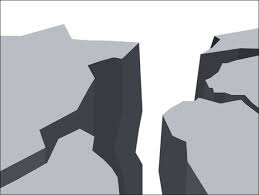Fault Lines: Hypocrisy as Tragedy

A pdf copy of this commentary can read and printed here.
“The fault, dear Brutus, is not in our stars, But in ourselves, for we are underlings.”
There is the familiar quote from William Shakespeare’s tragedy, Julius Caesar (Act I, Scene III, L. 140-141). Nothing – neither fate, nor such a fanciful human notion as divine providence, nor natural catastrophe — is to blame for all of the world’s un-doings. The fault lines lie within each other, and within ourselves.
The world around us has engulfed our individual lives in daily tumult that seems to worsen with each passing day. As a global pandemic rages on, the West coast is being incinerated, while the Gulf coast is underwater. Astronomers reassure us a near-Earth asteroid will simply pass by our planet the day before a November election that increasingly promises to be its own catastrophe; while creating a spectacular display of fireworks in the heavens for some lucky earthlings. But it wouldn’t surprise me if a plague of locusts isn’t right around the corner.

In reflecting on these fault lines that have been laid bare, it has occurred to me there are at least two relevant operating principles going on – now in overdrive — when we look with deeper introspection at our common situation. One is the all-too-human practice of hypocrisy (from a Greek word ὑπόκρισις ‘hypokrisis’, which basically means ‘play acting’). Another is the consequence of our own choice to play the hypocrite which is indeed tragic, as distinct from common misfortune.
Perhaps the Jesus of Matthew’s gospel may have once had something to say about these notions:
Then Jesus said to the crowds and to his disciples, 2‘The scribes and the Pharisees sit on Moses’ seat; 3therefore, do whatever they teach you and follow it; but do not do as they do, for they do not practice what they teach. … 23 ‘Woe to you, scribes and Pharisees, hypocrites! For you tithe mint, dill, and cumin, and have neglected the weightier matters of the law: justice and mercy and faith. It is these you ought to have practiced without neglecting the others. 24You blind guides! You strain out a gnat but swallow a camel! … 27 ‘Woe to you, scribes and Pharisees, hypocrites! For you are like whitewashed tombs, which on the outside look beautiful, but inside they are full of the bones of the dead and of all kinds of filth. 28So you also on the outside look righteous to others, but inside you are full of hypocrisy and lawlessness. [excerpts of Mt. 23]
Biblical scholars surmise the historical Jesus likely never uttered these exhortations; but rather it was the gospel writer imagined how the Jesus character that had been given shape by his early faith community’s remembrance of the itinerant wisdom teacher from Galilee.
Matthew’s gospel was written long after Jesus’ death, and likely after the fall of Jerusalem and destruction of the temple in 70 CE. The Pharisees became the dominant surviving religious party. There was conflict between what eventually became modern rabbinic Judaism and the emerging early Christian communities. And that’s when the all-too-common human fault line can occur; when power over principles arises with the dominant party, and the minority voice cries, “hey, practice what you preach!”
The hypocrite, of course, is someone who says one thing, and does another; depending on the role they assume with the lines they are given to utter at any given moment in time. Hence, other original definitions of the Greek word ὑπόκρισις (hypokrisis) are “coward,” and “dissembling.”
Furthermore, the word is an amalgam of the Greek prefix hypo-, meaning “under,” and the verb krinein, meaning “to sift or decide”. In other words, the hypocrite is one who actually, intentionally and deliberately chooses to place their self in the role of the coward; and dismantle whatever had heretofore been created and established. Like it or not, it’s their own fault. And, we need not look all the way back to ancient history for a good example.

The second fault line previously mentioned is consequential of the first, based on a mistaken notion of what constitutes true tragedy. Look at any Shakespearean drama, and you’ll find the worst and best in human beings laid bare; with everything that can befall us in life.
But tragedy is not the same as misfortune, for misfortune befalls us all. True tragedy results from bad choices, when we have the opportunity to choose otherwise. And those choices expose our deepest values; and not the lip service one might utter to please the ear until we might instead act with some integrity and courage in ways contrary to our transitory mutterings.
Those who have fallen victim to a global pandemic have suffered great misfortune. The racial divisions that remain a chasm in our nation have plagued our American experiment since its inception. But in the face of such misfortune, it is those tragic human choices have been made by play-actors, cowards and dissemblers.
The fault lies in ourselves, and in each other.
For whoever exalts himself will be humbled, and whoever humbles himself will be exalted. “Woe to you, teachers of the law and Pharisees, you hypocrites! You shut the kingdom of heaven in men’s faces. You yourselves do not enter, nor will you let those enter who are trying to. [Mt. 23:12]
© 2020 by John William Bennison, Rel.D. All rights reserved. This article should only be used or reproduced with proper credit.
More Words & Ways Commentaries can be found here.
________________________________________________________
** ProgressiveChristianity.org Editor’s Note: The views and opinions expressed here do not necessarily represent the official policy of ProgressiveChristianity.org. Any content provided by authors to our website are of their own opinion; we are not becoming a political organization, but we feel unusual times like these times call for a theological response.
